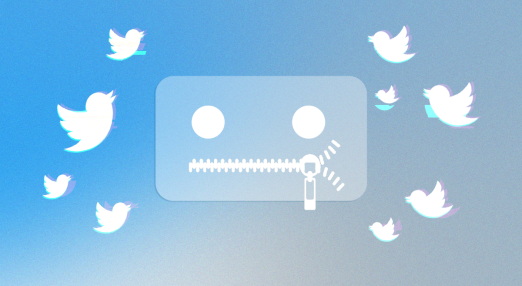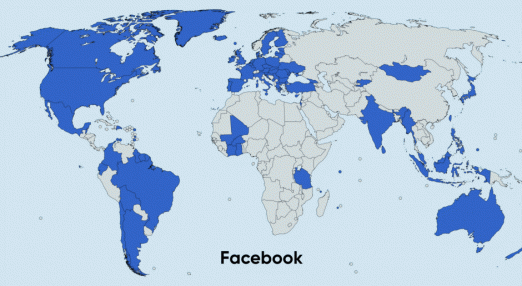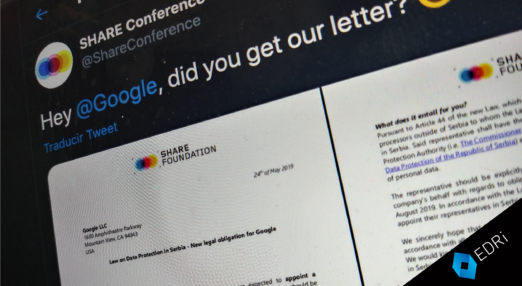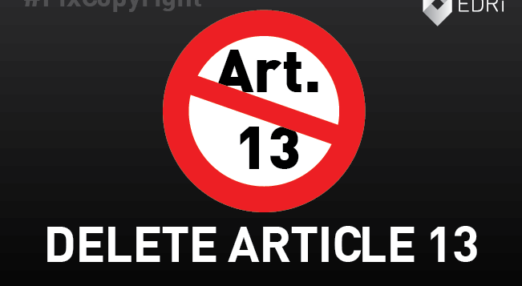Filter by...
-

Why EDRi is leaving X and where to find us
Since Musk’s acquisition of X in October 2022, we have been working towards an exit strategy. Recent developments and Musk becoming part of the second Trump administration have contributed to a unique and toxic platform power-grab, which has accelerated our X-it timeline. EDRi is joining many other organisations and people in leaving X by the end of January 2025. On 20 January, we will host an important X Spaces conversation to encourage our followers to join Mastodon.
Read more
-

When law enforcement undermines our digital safety, who is looking after our interests?
Imagine your friend sent you a private DM on Twitter. Now imagine, instead of the content remaining for your eyes only, Twitter letting the police also take a peek at it. Such intrusive practices of state actors accessing private messages have grave consequences for our lives. Some people can be physically harmed, and for some, it can mean that their families and friends could get prosecuted. At a collective level, the harm this does to our communities and society at large is immeasurable.
Read more
-

Everyone is on Mastodon now, but why?
Millions of people and organisations are flocking to Mastodon in the wake of Elon Musk’s Twitter takeover. EDRi is among those who recently started using the decentralised and free social network. What does Mastodon do better, and why does it get digital rights groups all excited?
Read more
-

Elon Musk buying Twitter. What could possibly go wrong?
A new chapter of the surveillance capitalism saga happened just three days after the EU members adopted the final agreement on the Digital Services Act (DSA). The board of directors of Twitter accepted Elon Musk’s offer to buy the company for USD 44 billion. The deal is not closed yet, and now the ball is in Twitter’s shareholders to accept or reject the offer. This news has grabbed the media's attention worldwide and opened public discussions on how this would affect not only the features of Twitter but also freedom of speech in the digital sphere.
Read more
-

Twitter Has a New Owner. Here’s What He Should Do
Elon Musk’s purchase of Twitter highlights the risks to human rights and personal safety when any single person has complete control over policies affecting almost 400 million users. And in this case, that person has repeatedly demonstrated that they do not understand the realities of platform policy at scale.
Read more
-

Online political ads – a study of inequality in transparency standards
In its new report, EDRi member PI looks into the implementation of transparency tools by Facebook, Google and Twitter in relation to political advertising. This work was produced in collaboration with partner organisations InternetLab and ELSAM.
Read more
-

SHARE’s campaign bears fruit: Google appoints Serbian representatives
Serbian citizens can now bring their objections and requests regarding Google’s use of their private data to the tech giant’s new representative in the country.
Read more
-

A privately managed public space?
Our “public spaces” online where we meet each other, organise, or speak about social issues, are often controlled and dominated by private companies (platforms like Facebook and YouTube). Pushing platforms to decide which opinions we are allowed to express and which not is not going to solve major problems in our society. The EU rules […]
Read more
-

Twitter banning political ads – the tip of the iceberg
Twitter seems to have learnt the lessons of the 2016 US elections. After the revelation of the Cambridge Analytica scandal, the link between the use of social media targeted political advertisement and the voting behaviour of specific groups of people has been explored and explained again and again. We now understand how social media platforms […]
Read more
-

Open letter demands interoperability of the big online platforms
On 21 May 2019, EDRi observer La Quadrature du Net, along with 70 other organisations, including some EDRi members, sent a letter asking the French government and members of the Parliament to force web giants (Facebook, Youtube, Twitter…) to be interoperable with other online services. The purpose is to allow users of these platforms to […]
Read more
-

It starts with free Pokémon Go, it ends with Bolsonaro
Chile was the first country in the world to have a net neutrality law, but it is not enforced at all. A simple search across mobile internet providers shows a large offer of “free” data if you’re using platforms such as Facebook, Twitter, Instagram, Spotify, or Pokémon Go. This is called “zero-rating” and means people […]
Read more
-

Let’s stop the Censorship Machine!
We have to make sure our representatives in the European Parliament oppose Article 13 during their vote in the JURI Committee on the proposed Copyright Reform. The dangers have been pointed out repeatedly. Still, they have remained ignored. We therefore decided to send the message in different languages, hoping Parliamentaries will better relate this time. […]
Read more
